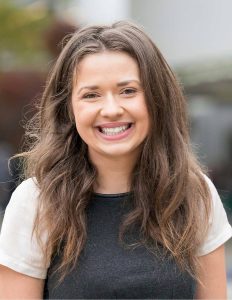

Jory Smallenberg: “Part way through my master’s degree with UBC’s Department of Political Science, and at the height of the COVID-19 pandemic, I heard about the Yale-UBC Fox International Fellowship through the School of Public Policy and Global Affairs (SPPGA). The Fellowship’s specific and singular focus on peacebuilding is what first drew me to the program. In fact, the Fellowship was established during the Cold War to foster academic exchange between the USA and the former USSR – acting as one piece of the puzzle in a restored global order.
With the Cold War in hindsight, our world faces new and ongoing challenges: climate change, migration crises, and a global pandemic, to name a few. Consider two of the most polarized groups in our current historical moment – fill in the blank – coming together to pursue the common good through academic collaboration. In my mind, this describes the culture of the Yale-UBC Fox International Fellowship.
While the program’s structure differed from previous years – with some fellows attending in person, and others participating virtually – the Fellowship’s mission remained the same. During my time with Yale, I learned about the role of Jewish people in the fight for interwar minority rights (Joshua Leung, Sciences Po), assessed the relationship between law and mercy with fellow Giordana Campagna (Cambridge University), and, with fellow Jeanine Quené (Cambridge University), identified values conflicts among conservatives who fought for suffrage in America.
In fact, conflicts in values are a core theme of the Fellowship: Alaa Hajyahia (Tel Aviv University) taught fellows about contradictions among liberal Jewish leaders who support Zionist policies and Amy Hodgson (University of Melbourne) shared reflections from survivors of the Pinochet dictatorship with the improvement of truth commissions in mind.
In addition to learning from fellows, I shared my research on public-private partnerships, religious NGOs, and the private sponsorship of Syrian refugees with peers in a global setting – largely doctoral students – who joined me in mutual reflection. If you, too, are fascinated by the intersection of social issues and academic research, I encourage you to apply to the Yale-UBC Fox Fellowship!
In sincerity, I cannot think of a better way to conclude my graduate studies at UBC than to share in a multi-cultural and intergenerational think tank with scholars committed to the most intense global challenges. I appreciated how the Yale-UBC Fox International Fellowship prioritizes learning over evaluation, and thoughtful research above accelerated production. This reflects the Fellowship’s focus on global solutions from a truly interdisciplinary perspective.
I would like to sincerely thank Dr. Yves Tiberghien (UBC) and Dr. Emily Erikson (Yale) for their unparalleled generosity before and during the program. Yves and Emily inspire me towards greater curiosity, wonder, excellence, and peacebuilding. When esteemed thought leaders partner with emerging scholars by believing in their students, productive academic exploration is more possible than ever. Thank you, Yves, and Emily!
Most of all, thank you to the Fox family for their trailblazing vision, generous legacy, and ongoing engagement with the fellows every year. Future Yale-UBC Fox Fellows can look forward to engaging directly with members of the Fox family during weekly seminar presentations for the duration of the six-month Fellowship. During these weekly sessions, they will build key personal and professional relationships that will spur on their research for years to come.
If you are a UBC student with questions about the Fellowship or considering applying, please do not hesitate to contact me at jory [at] aya [dot] yale [dot] edu ”


